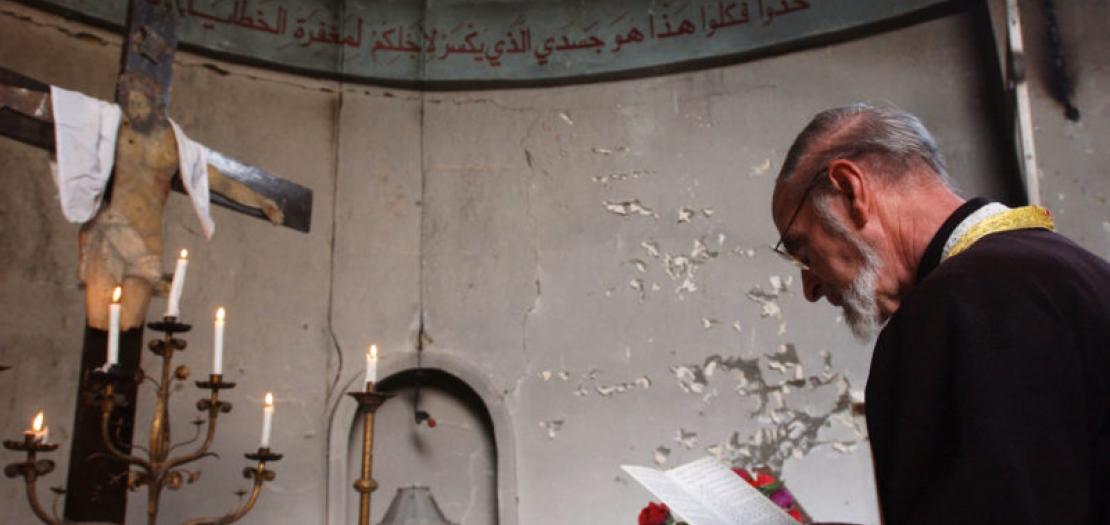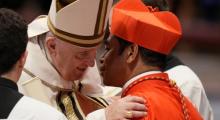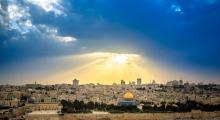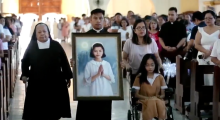Issued by the Catholic Center for Studies and Media - Jordan. Editor-in-chief Fr. Rif'at Bader - موقع أبونا abouna.org

Christians today face worse persecution than at any time in history, yet the UN and the international community are largely ignoring them, a new report says.
‘Persecuted and Forgotten?’ by the UK office of Catholic charity Aid to the Church in Need (ACN) says the persecution of Christians reached a new high between 2015 and 2017, as groups such as ISIS and Boko Haram stepped up attacks.
The report accuses the international community of failing to respond adequately to the violence, stating: “Governments in the West and the UN failed to offer Christians in countries such as Iraq and Syria the emergency help they needed as genocide got underway.
“If Christian organisations and other institutions had not filled the gap, the Christian presence could already have disappeared in Iraq and other parts of the Middle East.”
As well as Iraq and Syria, Christians are under increasing threat in several major Islamic countries, as well as under authoritarian regimes such as North Korea and Eritrea.
John Pontifex, who edited the report, said: “In terms of the numbers of people involved, the gravity of the crimes committed and their impact, it is clear that the persecution of Christians is today worse than at any time in history.
“Not only are Christians more persecuted than any other faith group, but ever-increasing numbers are experiencing the very worst forms of persecution.”
Researchers focused on 13 countries, providing an overview of the state of religious freedom for the country’s various denominations.
In China, for example, Christians have come under increasing pressure as authorities try to force their religion to conform to Communist ideals. More than 2,000 churches have been demolished in the coastal province of Zhejiang, and police are still routinely detaining clergy.
Christians have also been disproportionately affected by Islamist violence in the Middle East. In Iraq, more than half of the country’s Christian population became internal refugees, while Syria’s second city of Aleppo, which until 2011 was home to the largest Christian community, saw numbers dropping from 150,000 to barely 35,000 by spring 2017 – a fall of more than 75 per cent.
Local Church leaders in the Middle East have repeatedly said that they feel forgotten by the international community. A number of bishops have accused the UN of overlooking the needs of displaced Christians, despite pledging to deliver aid “neutrally and impartially”.
Extremism is also a growing problem in Africa – particularly in Nigeria where Boko Haram have displaced more than 1.8 million.
In one diocese alone – Kafanchan – within five years, 988 people had been killed, and 71 Christian-majority villages had been destroyed, as well as 2,712 homes and 20 churches.
“The pervasive nature of persecution – and evidence implicating regimes with whom the West has close trading and strategic links – mean that it behoves our governments to use their influence to stand up for minorities, especially Christians.
“No longer should Christians be sacrificed on the altar of strategic expediency and economic advantage.”







